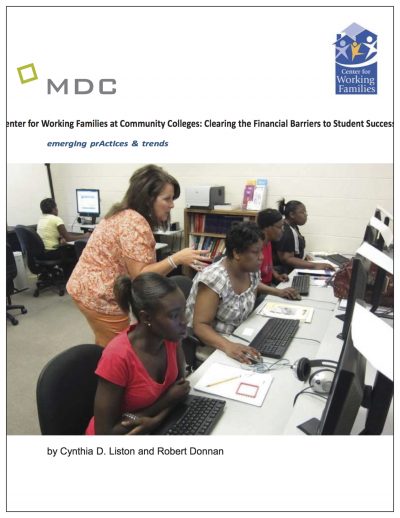Funding Flexibility
Funds from Center for Working Families programs can be used for many different services. Such versatility allows the colleges to be creative in order to serve as many low-income students as possible.

This study reviews the emerging Center for Working Families (CWF) learning network on 10 college campuses. The report details how the individual colleges provide services, whom they serve, how the unique CWF approach fits and adapts within local college contexts, and what outcomes they are accomplishing.
Community colleges implementing Center for Working Families services find students can define their own educational and financial goals, then CWF helps create plans to achieve them.
We hope you'll find value in this report. We’d love to get a little information from you, which we'll use to notify you about relevant new resources.